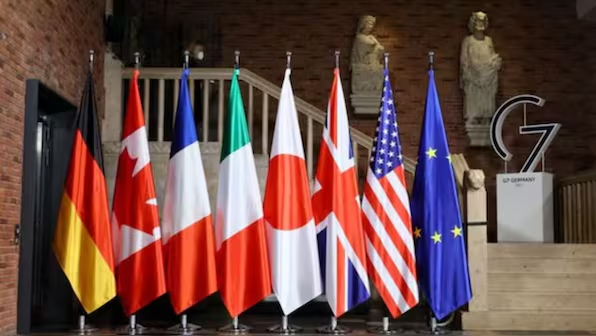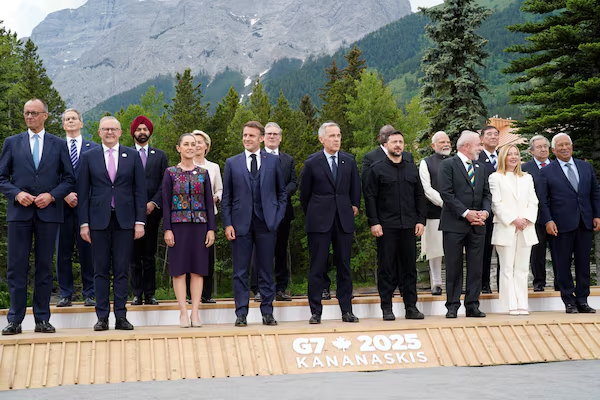In a significant breakthrough for U.S. tax policy, the Group of Seven (G7) nations announced on Saturday that they have agreed to exempt American multinational companies from the global minimum tax imposed by other countries.
The decision marks a major diplomatic victory for President Donald Trump’s administration, which lobbied intensely for a compromise that would prioritize domestic taxation of U.S. firms.

Under the new framework, U.S. companies will benefit from what the G7 described as a “side-by-side” tax solution. This approach allows American firms to be taxed solely in the United States—on both domestic and international profits—rather than being subjected to additional levies in foreign jurisdictions.
The announcement was made in a joint statement released by Canada, which currently holds the G7’s rotating presidency.
The shift in tax policy was made possible, in part, by recent proposals included in Trump’s sweeping domestic policy legislation, currently under debate in Congress. These proposed changes to the U.S. international tax system played a key role in gaining support from G7 partners, according to the statement.

The G7 emphasized that the side-by-side model could help bring “greater stability and certainty” to the international tax landscape—a point long championed by U.S. officials who have voiced concern over the complexity and competitiveness risks of the current global tax deal.
The broader framework for taxing multinational corporations was first negotiated in 2021 by nearly 140 countries under the guidance of the Organisation for Economic Co-operation and Development (OECD).

The agreement, which included a global minimum tax rate of 15%, was intended to prevent profit shifting and ensure large companies pay a fair share regardless of where they operate. It comprises two pillars: the first reassigns some taxing rights to market jurisdictions, and the second sets the minimum tax floor.
President Trump has consistently criticized the global tax plan, arguing that it places an unfair burden on American businesses and undermines U.S. sovereignty in fiscal policy. The exemption, while endorsed by the G7, will ultimately require approval from the OECD to become binding.

U.S. Treasury Secretary Scott Bessent, speaking earlier in the week, hinted at the breakthrough, noting that a “joint understanding among G7 countries that defends American interests” was nearing completion. He also called on Congress to remove Section 899 from Trump’s proposed “One, Big, Beautiful Bill.”
The controversial clause, nicknamed the “revenge tax,” would allow the U.S. government to impose taxes on foreign-owned firms and investors from countries that target American businesses with punitive tax measures. Critics argue that such a policy could deter foreign investment in the U.S.

As international negotiations continue, the G7 expressed optimism about swiftly finalizing an agreement that works for all parties. “We look forward to expeditiously reaching a solution that is acceptable and implementable to all,” the group said.
Be the first to know. Tap to join us on Telegram.
Discover more from Scoop Hub
Subscribe to get the latest posts sent to your email.

